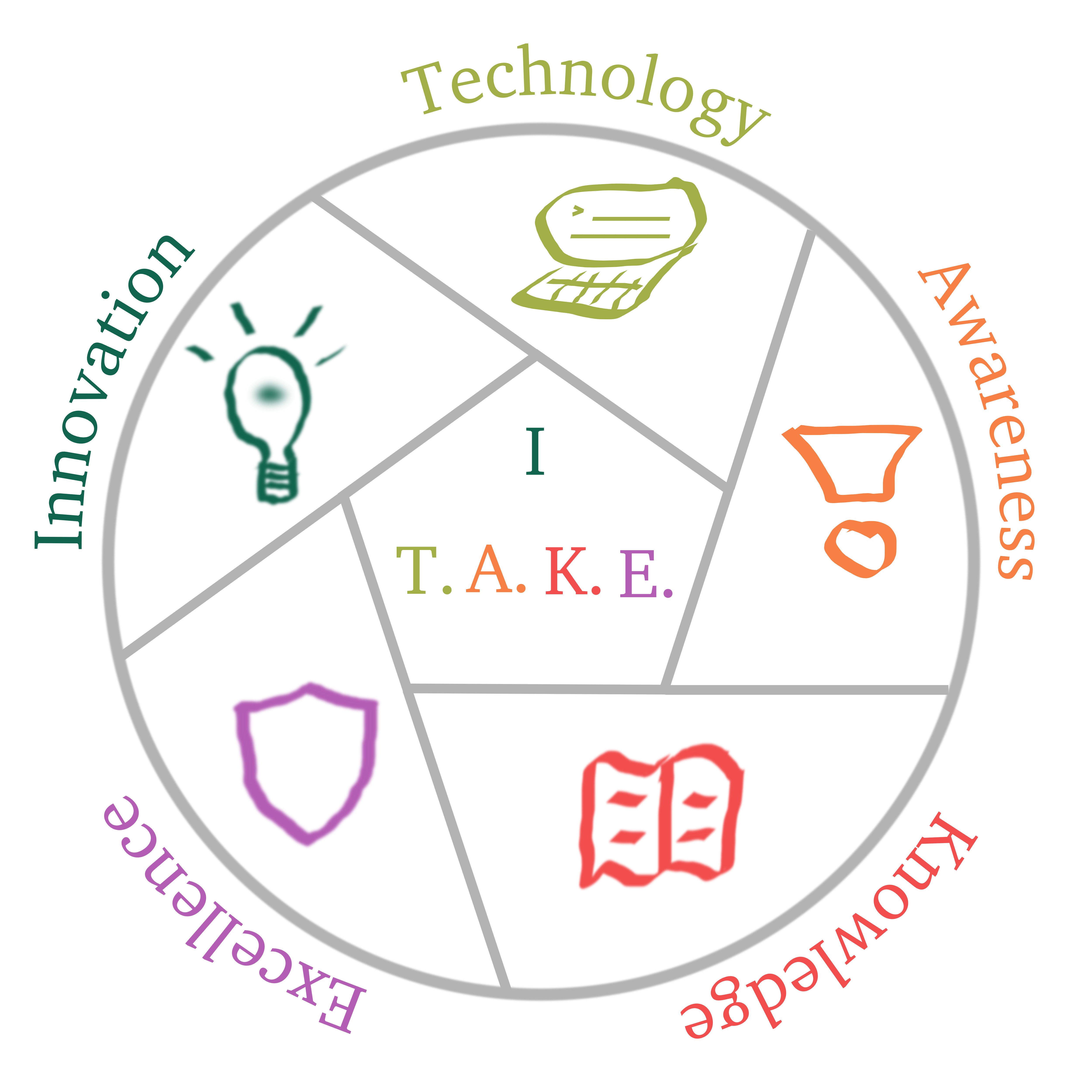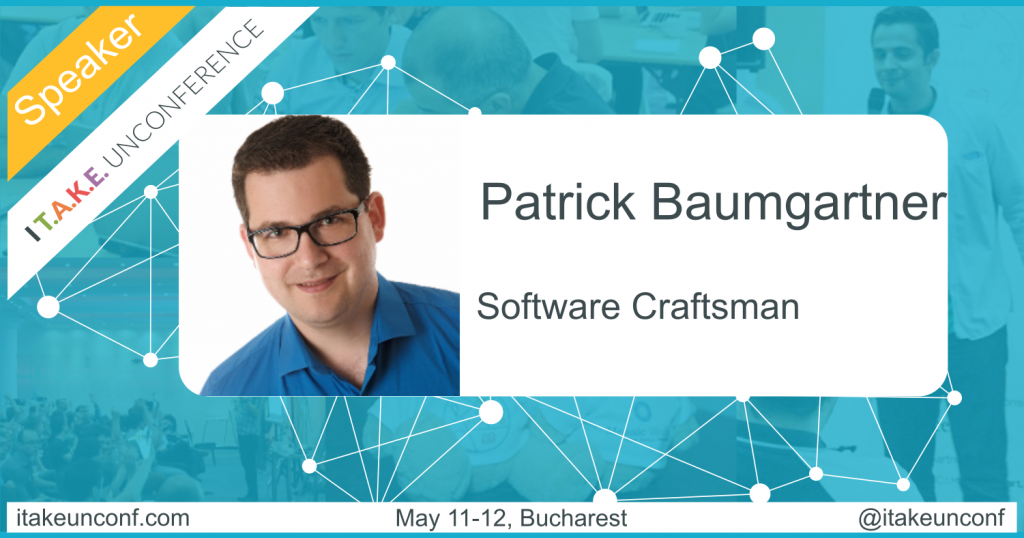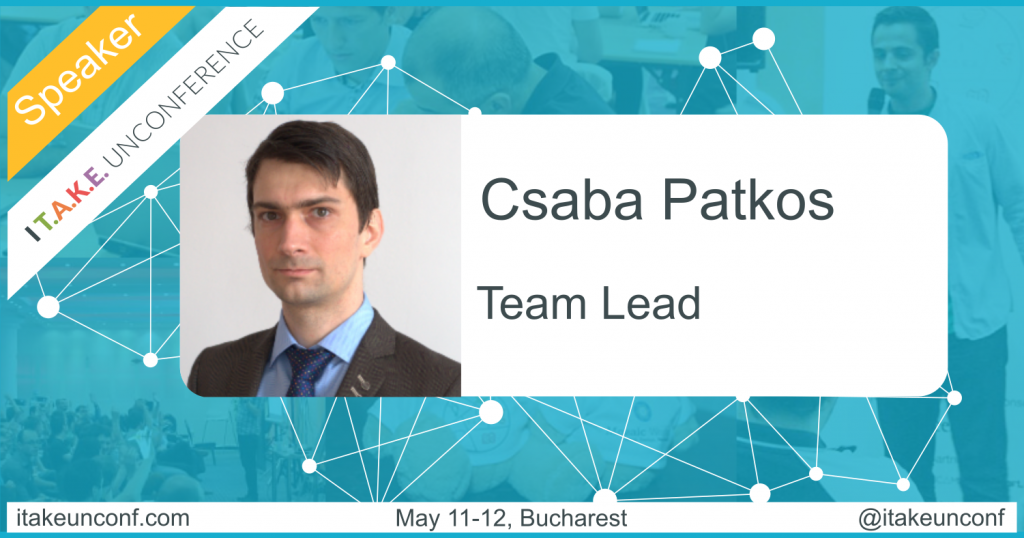First two confirmed keynotes
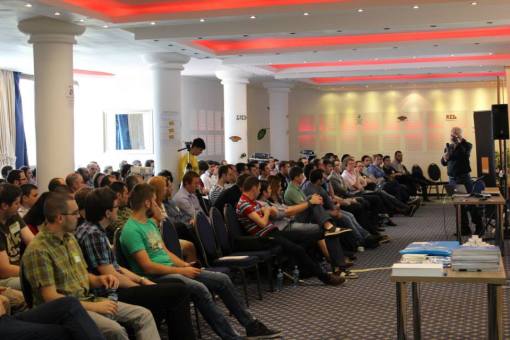
Simon Brown, award-winning speaker and author of Software Architecture for Developers – a developer-friendly guide to software architecture, technical leadership and the balance with agility. Simon has provided consulting/training to software teams in over 20 countries, ranging from small startups to global blue chip companies. He blogs @ www.codingthearchitecture.com Tweet him @simonbrown
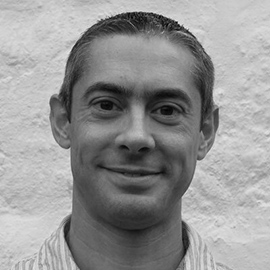
James Lewis, Principal Consultant, introduced evolutionary architecture practices and agile software development techniques to various blue chip companies: investment banks, publishers and media organisations. He blogs @ http://bovon.org More about his take on Microservices here where he worked jointly with Martin Fowler.
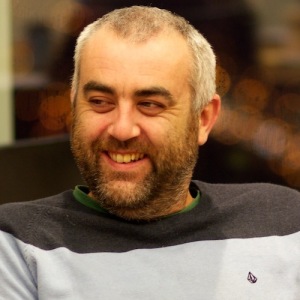
Have any questions about I T.A.K.E. Unconference 2015? Let us know in the comments.
[newsletter-form]

Impact Mapping | Patrick Baumgartner
#1. Share with us 5 things from your experience that helped you grow & become the professional you are today
- having a mentor who supports you is great and helps you to challenge your ideas and decisions
- being curious helps you to continuously learn new things
- teaching others helps you to get better on the topic and you learn how to explain things to others
- meeting continuously new people to create new ideas and get inspiration
- having enough rest so that your brain has time for recreation
#2. What challenges will the participants find solutions to during your session at I T.A.K.E Unconference 2017?
#3. Recommend for the participants 3 sources you find inspiration from and would help them better understand you
- Learn from and with others, by getting involved in local / international practitioners communities. For example, we run in Zurich a monthly Software Craftsmanship Meetup with very diverse topics
- Attend conferences to get inspired by the talks and workshops, as well as the discussions with participants and other speakers.
- Take time for yourself, relax, free your mind and new ideas and thoughts will pop up automatically!
Want to join Patrick, +30 international speakers and ~300 software crafters from around Europe?
Register now for I T.A.K.E Unconference 2017!

Covariance and contra variance. Say what ?!
Enjoy the following series of interviews with the speakers, top-notch software crafters from across Europe, joining I T.A.K.E Unconference, Bucharest, 11-12 May. Discover the lessons learned and what drives them to challenge the known path in their field.
Alin Pandichi, Software Developer at MozaicLabs and facilitator of the monthly Coding Dojo meeting that is part of the largerBucharest Agile Sofware Meetup Group, will share during his talk at I T.A.K.E Unconference more about Covariance and contravariance.
#1. Please share with us 5 things you did that helped you grow & become the professional you are today
I’ll answer this with a little bit of story telling about how I became a software developer. The first two things that helped me were attending the computer science oriented high school and college. There, I learned the basics of computers and programming languages. I also noticed how effortlessly I was solving CS related problems, so maybe I was onto something.
Number three: I got my first job straight out of college, developing a Swing rich client application saving data with JPA. This put me face to face with real world problems. I was faced with the fact that continuous learning is a must in this industry.
Therefore, number four on the list is learning. For the first few couple of years, I kept devouring every Java-related article I could find on DZone. With each one, I found out something new: a useful tool, a Linux terminal command, a development methodology, etc.
Last, but not least, is getting involved with local software development communities. I started attending meetups such as The Bucharest Agile Software Meetup Group and the Bucharest Java User Group. Gradually, I became an active member of both, giving a helping hand in organizing their events. On top of that, I also got involved in the wider community of Global Day of Coderetreat. My talk at I TAKE 2017 is one of the occasional opportunities I get to share what I know.
#2. What challenges will the participants find solutions to during your session at I T.A.K.E Unconference 2017?
They will find it easier to understand the concepts of covariance and contravariance, and how they are applied in the world of programming. In my experience, it was very easy to forget what these two words meant. Not anymore.
#3. Recommend for the participants 3 sources you find inspiration from and would help them better understand you
I dream big, so my biggest source of inspiration is science fiction. My first serious SF encounter was with Frank Herbert’s Dune series. Out of the contemporary authors, I enjoy Neil Gaiman’s work very much.
Whenever I get a chance, I tune into Nick Francis’ podcast called Quiet Music. It is a blend of low beat music of various genres: electronic, jazz, instrumental, folk, light rock, and so on.
Cinema is one of my other hobbies. I am very much interested in following every film festival happening in Bucharest. Also, the Romanian cinema of the past two decades has offered many gems so far, and it continues to do so.
Want to join Alin and ~300 software crafters from around Europe?
Register now for I T.A.K.E Unconference 2017!
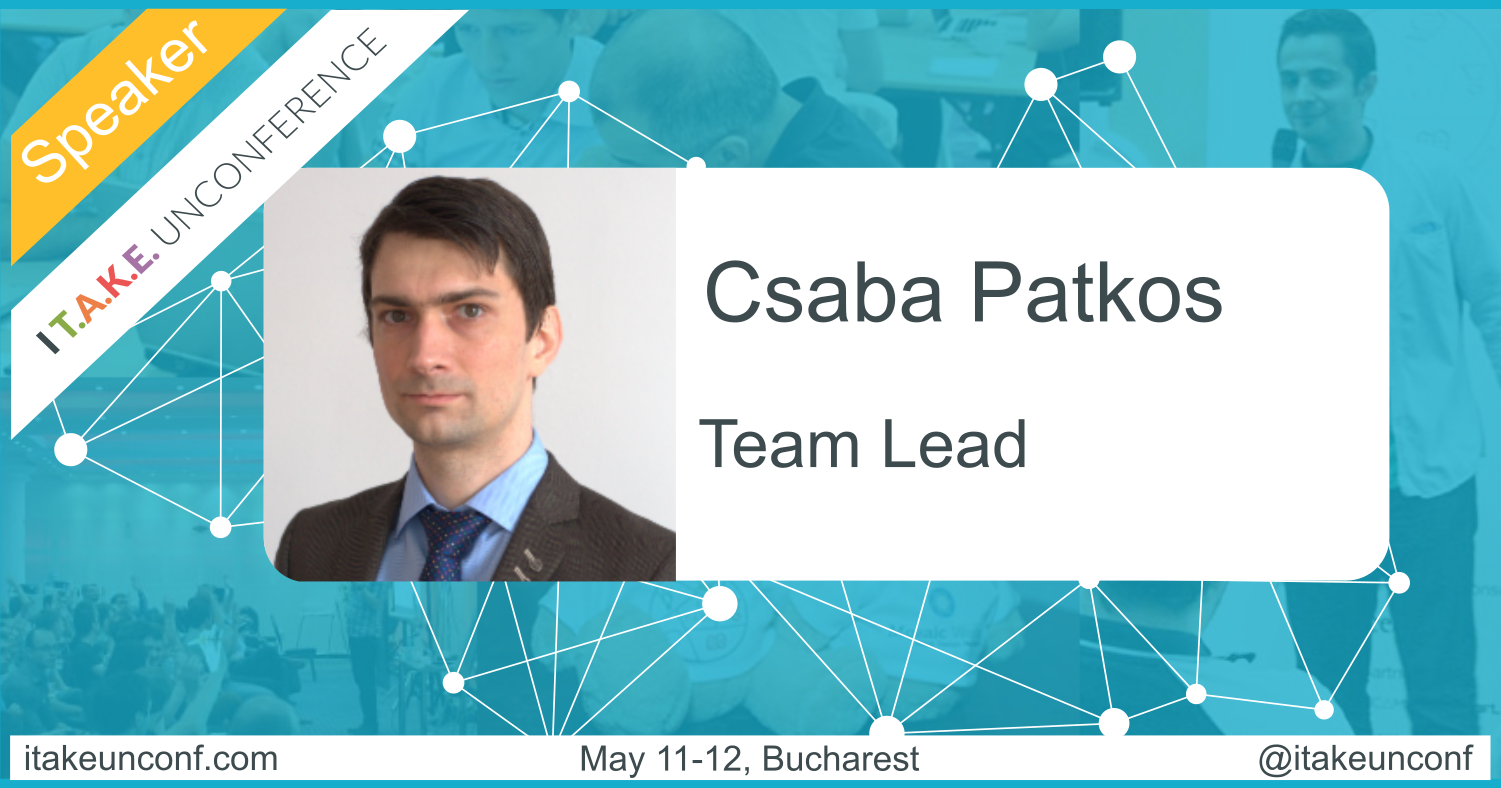
Developers are not computers
Enjoy the following series of interviews with the speakers, top-notch software crafters from across Europe, joining I T.A.K.E Unconference, Bucharest, 11-12 May. Discover the lessons learned and what drives them to challenge the known path in their field.
Csaba Patkos, Team Lead Syneto, is a technical practitioner with 15 years of experience in the field. Joining #itakeunconf 2017 as speaker, he will share more in his talk about his experience of growing up as a team leader, mentor, and coach for the team he works with daily.
#1. Please share with us 5 things you did that helped you grow & become the professional you are today
- Reading … I mean a lot. 40-50 books / year are doable. They can mix in a few novels / literature as well.
- Made plans and fought to achieve them. Think about where you want to be in 6 months or 1 year and define the steps you need to take to get there.
- I love programming and software engineering. I do it daily, with dedication.
- Built some useful daily habits that are helping me to get better. For example listen to audio books when driving, daily reading, daily plan of work, etc.
- Talked to the people I admire and I used these talks as sources of inspiration. So, don’t be afraid to approach your professional idols, they are people just like you.
#2. What challenges will the participants find solutions to during your session at I T.A.K.E Unconference 2017?
√ Some people just won’t listen to you.
√ Some people just want to force their ideas on you.
√ Some people don’t care about the topic, they just pick fights with you.
√ Some people think you don’t care, even though you really do.
√ Other communication issues.
#3. Recommend for the participants 3 sources you find inspiration from and would help them better understand you
Want to join Csaba and ~300 software crafters from around Europe?
Register now for I T.A.K.E Unconference 2017!
